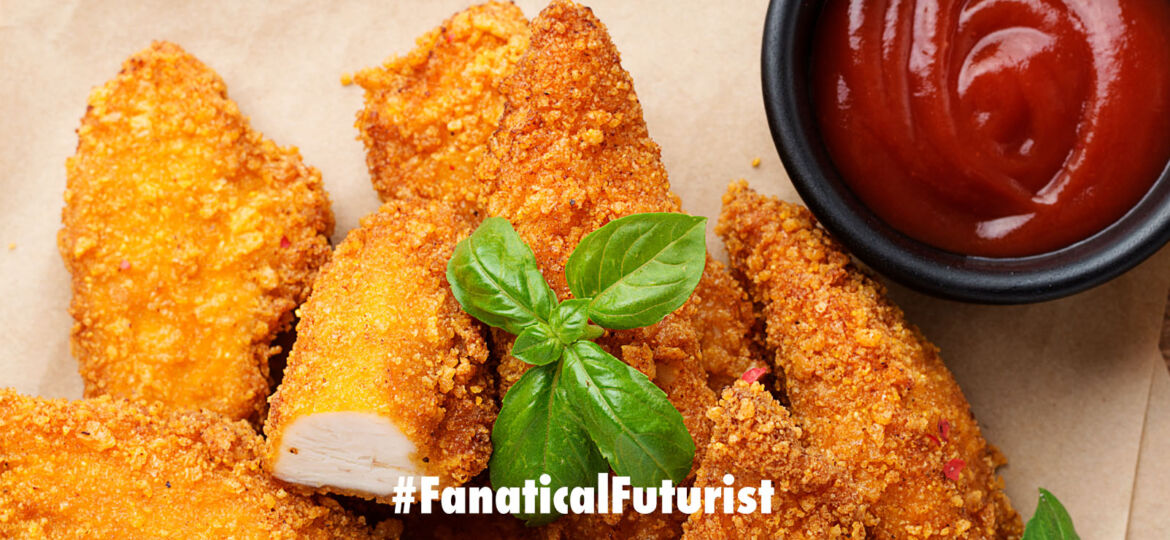
WHY THIS MATTERS IN BRIEF
For tens of thousands of years humankind have gotten their meat from animals, now that no longer needs to be the case.
 Love the Exponential Future? Join our XPotential Community, future proof yourself with courses from XPotential University, connect, watch a keynote, or browse my blog.
Love the Exponential Future? Join our XPotential Community, future proof yourself with courses from XPotential University, connect, watch a keynote, or browse my blog.
Every new technology faces many hurdles before it eventually replaces the status quo and becomes the “new” status quo, and it’s the same for so called “Clean Meat” – the same meat you know and love that normally comes from animals but that in this case is made from animal cells that are cultured in bioreactors in labs instead. And if you’re interested in the Future of Food check out my special feature.
Recently there have been a host of companies in the space showing off everything from authentic bacon, fish fillets, pork, and steaks, to beef meatballs, and chicken nuggets – the latter of which is now being rolled out by KFC as part of their “Future Food” project in the US.
Among the many hurdles to overcome there’s the cultural aspect of people simply accepting the new thing as the new status quo, but there are also more practical hurdles such as accessibility, affordability, and, among the other many hurdles – regulation. After all, if a new technology isn’t regulated or approved for use then it doesn’t matter how good or how beneficial it is, it never hits the market.
When it comes to clean meat in the past five years alone the cost per pound of making it has fallen from a staggering $1million to a much more sobering $363, and in the years to come it’s projected to fall to below $5 which will put it on a par with regular supermarket meats – but without the massive environmental impact that traditional meats have, and, because of the way it’s made, an organic label to boot.
Now, in a landmark move and a year after the FDA first approved clean meat in the US as safe to eat, Singapore have just announced they’ve granted US start-up Just regulatory approval to sell their lab grown chicken in the country, and in doing so they’ve become the first government in the world to allow the sale of cultured meat – it’s a truly watershed moment for the new “technology.”
The product, created from cultured chicken cells, has been approved as an ingredient in chicken bites following Singapore Food Agency (SFA) approval, said Just.
Initially, the chicken bites will debut in a Singapore restaurant, with plans for wider expansion into dining and retail establishments in the country, said Josh Tetrick, co-founder and CEO of Just. The product will be priced at parity with premium chicken, he added.
“We’ve been eating meat for tens of thousands of years, always needing to kill an animal to eat – until now,” he said.
The cultured meat is created in a bioreactor, an apparatus in which a biological reaction or change takes place, and the product has a high protein content and is a rich source of minerals, according to the company, which plans to sell the product under the GOOD Meat brand.
For now, with manufacturing hubs in Singapore and Northern California, the company only has approval to sell the meat in Singapore, but it hopes to expand sales of cultured meat, including cultured beef, into the US and Europe, Tetrick said.
Just already produces a range of non-animal products, including Just Egg, made with mung beans, and a vegan mayonnaise, and the trend toward meat substitutes and plant based protein, already growing in the United States, is also taking hold in Asia.
This year, despite the global economic turmoil triggered by the coronavirus pandemic, plant-based protein startup Impossible Foods secured about half a billion dollars in fresh funding, with investment mostly coming from heavyweight investors in Asia.
California-based Beyond Meat last month unveiled a meatless minced “pork” for launch in China, while Impossible launched its fake beef product in supermarkets in Hong Kong and Singapore in October, hoping to widen its footprint across Asia.

















[…] is this new method getting cheaper, but from Singapore to the US people can now buy, for example, chicken nuggets made in this way from restaurants and […]